Remember learning to play the recorder? According to MOE’s music syllabus, every primary school student will be exposed to at least one instrument in class.
A student is intrigued by the keyboard they were introduced to in class and wants to learn more! They would need a keyboard and a teacher. A quick look at Shopee shows that the cheapest keyboards all cost at least $100. And an entry level weekly 45-minute keyboard lesson at Yamaha Music School costs about $180 per month, or $45 per lesson.
Clearly, learning an instrument is not cheap and that’s the gap that The Resonance Project fits right in.
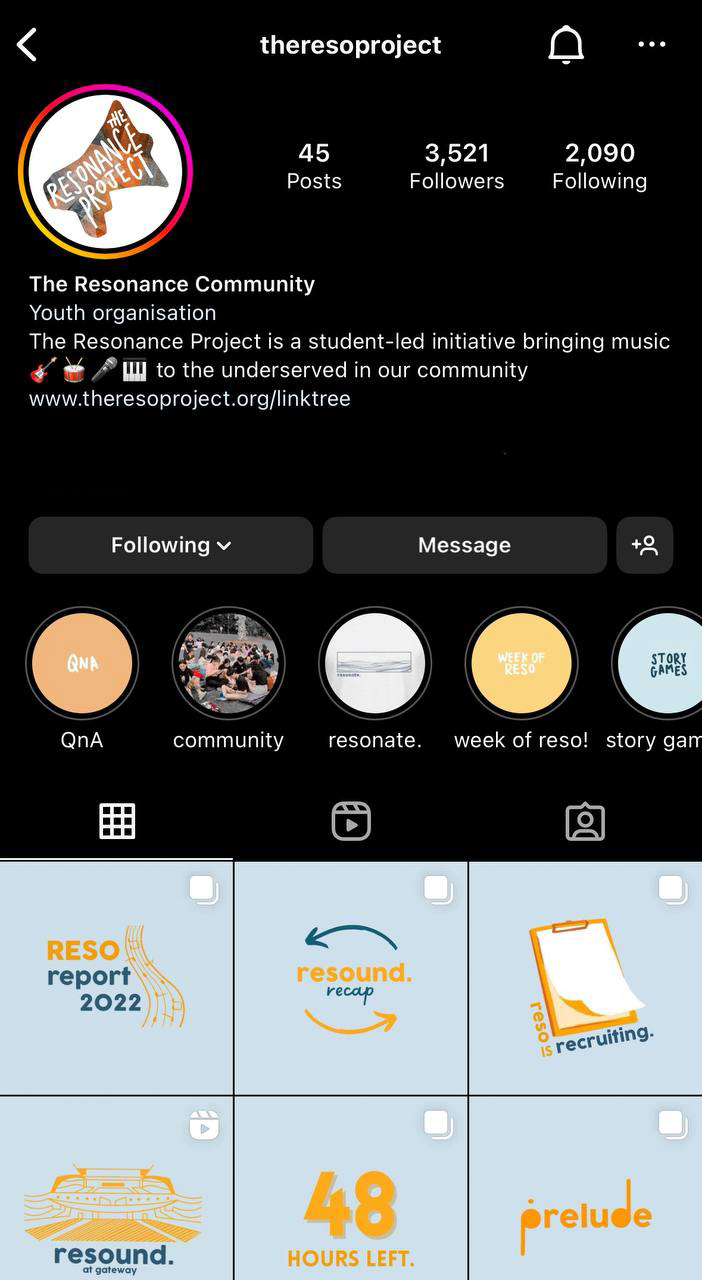
Affectionately known as Reso, the organisation was conceptualised in 2021 by then 17-year-olds Elijah Chao and Ivan Chiew to “do something small, something good. Just teach some people some music.”
So, what is Reso?
Reso is a collection of 13 to 19-year-olds from 45 different schools across Singapore. With 432 members in total, past and present, they’ve run more than 500 music lessons across 13 locations with their partner organisations for their 313 beneficiaries and counting.
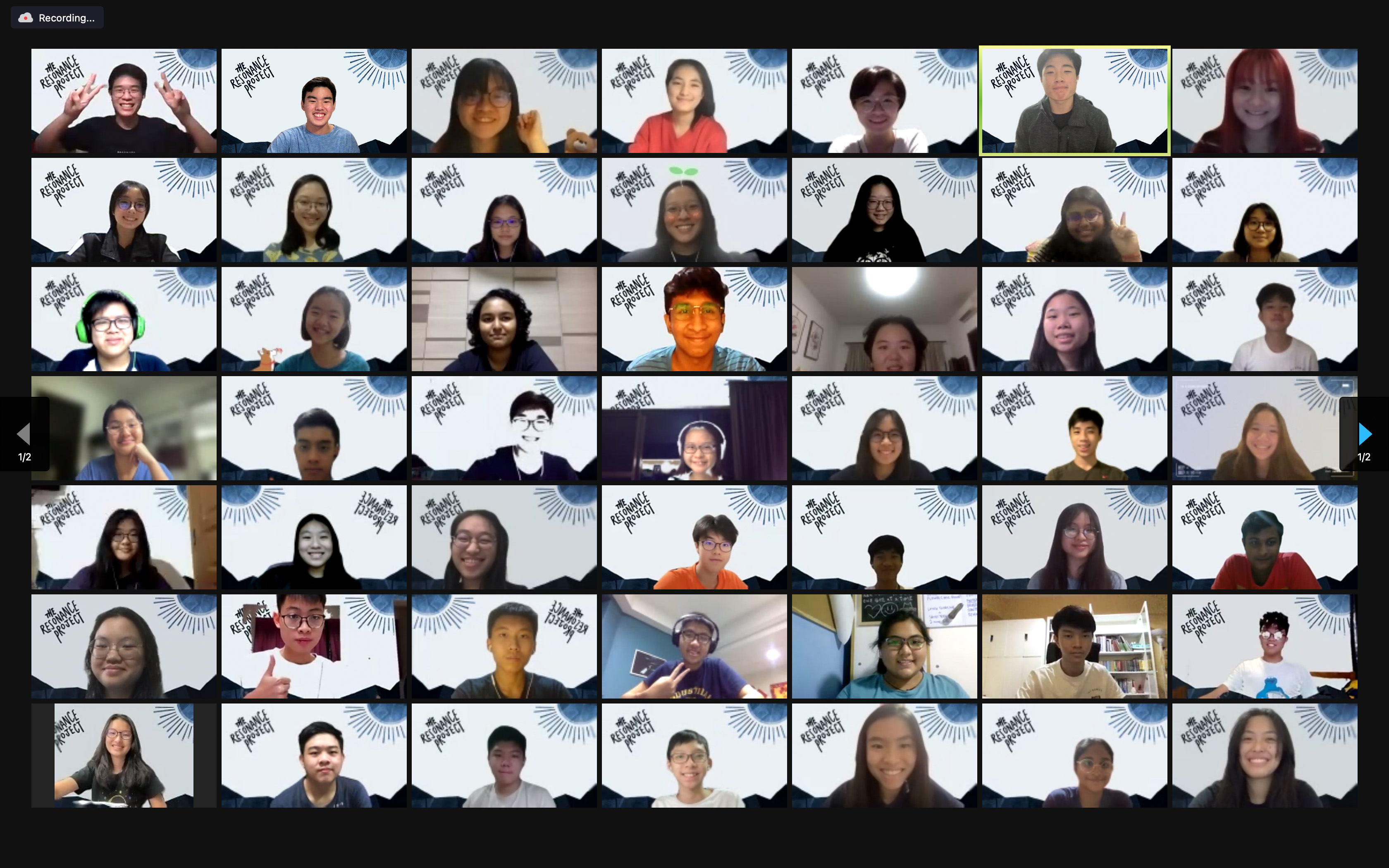
At its core, the volunteers are brought together by their passion for music and serving the vulnerable. They form a vibrant community that serves the community by raising funds through events, and offering free music lessons. Reso members also come together in jamming sessions and general meetings to foster deeper internal relationships.
Reso runs their lessons with 153 instruments bought using merchandise and ticket revenue from their quirky “not-a-concert” music events.
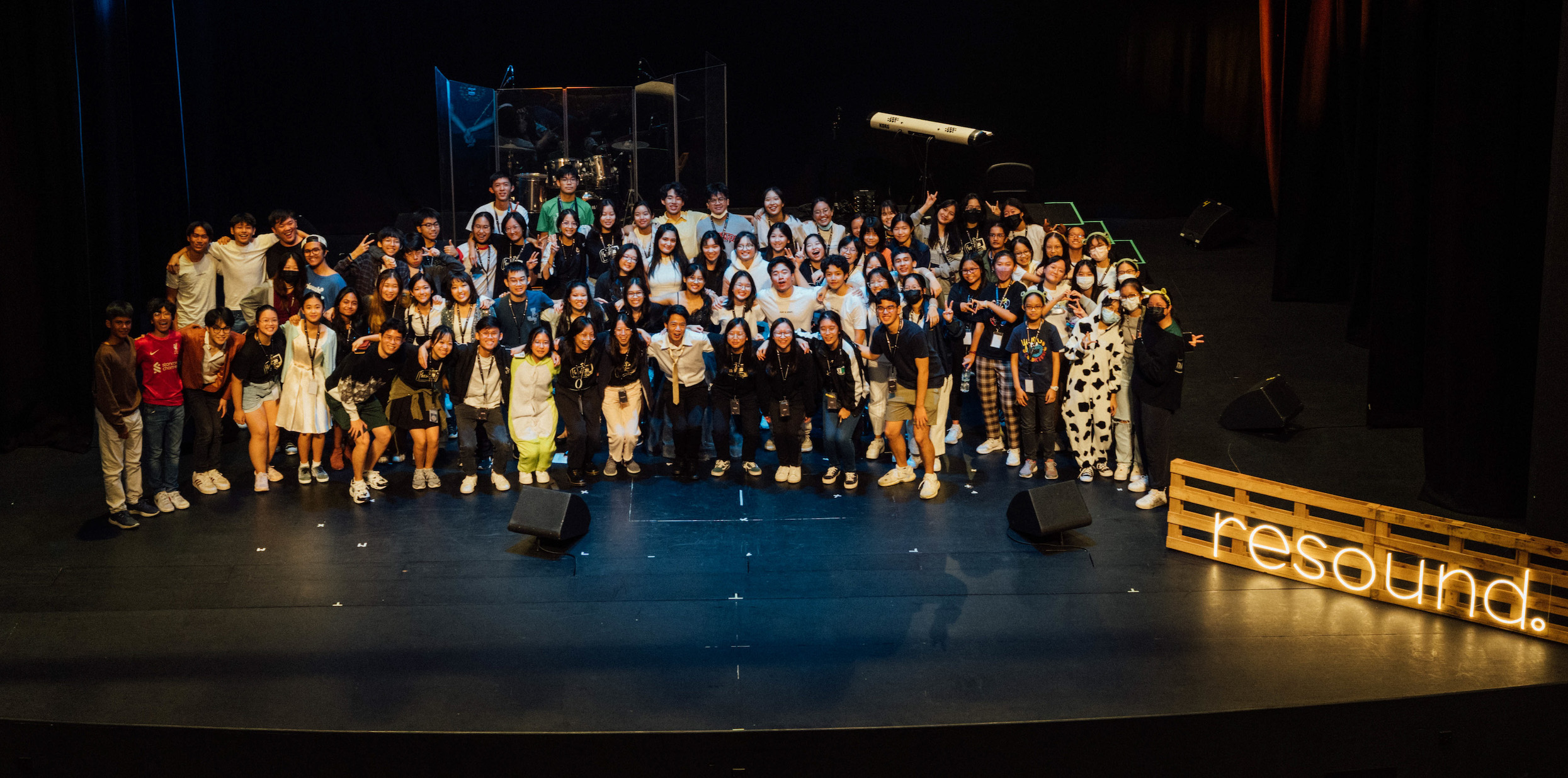
Currently, they are organised into eight departments: curriculum, community, communications, admin, media, publicity, events and welfare. The departments all have very specific job scopes either facing inward or outward.
Communications functions like a corporate relations team that maintains their relationships with the partner centres. Admin is essentially a human resource team that settles their volunteer management system. Using data, they figure out data like the average time served for each volunteer to help guide future planning. Basically, a fully-functioning company. Isn’t that impressive?
These structural decisions came about through constant iteration and adjusting according to Reso’s immediate needs. Just like the freshmen orientation camps we have in school, volunteers across different departments come together in task forces to plan them for new members.
In the beginning…
The founding team consisted of friends who had been jamming together – coming together to play music without a plan, just for fun. There were no expectations besides “let’s not fail”.
They simply started a document, starting with roles and structure. Elijah said, “I look back at it once in a while, it’s a very cringey document.” Impressively, off this one “cringey document” these students gathered their first few volunteers.
Using nothing more than their Instagram page (@theresoproject) and personal connections, the project’s first wave of volunteer recruitment began. “We could have had 80 members at the start but we whittled it down a lot… We knew that some people saw projects as socialising spaces for other things and we tried really hard to fight against that,” said Elijah.
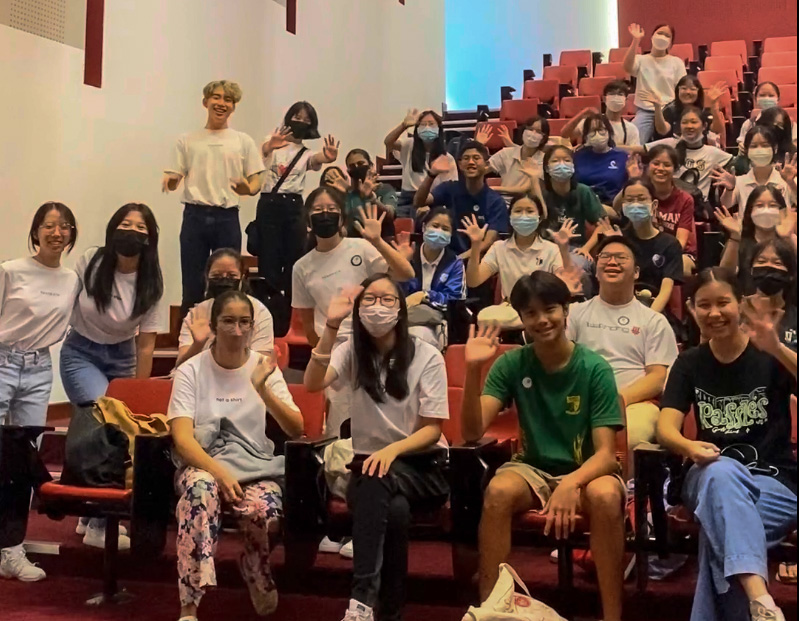
Now 40 volunteers strong, they addressed their immediate needs by creating a curriculum and establishing the foundations for their community. But, what’s the use of having volunteers and a curriculum without beneficiaries to serve?
During breaks while Elijah was interning, he made many calls attempting to convince the first few organisations to let them run music lessons. “It was hard to pitch at the start: ‘We’re a bunch of youth, we don’t know who these youth are yet, because we haven’t finished our first round of recruitment.’ Okay, we didn’t say that… But can we help serve? Fill a need here by teaching some music?”
Some of the contacted organisations ignored them, some were confused by their proposal, others asked for their credentials. Somehow, within the first month they managed to persuade Methodist Welfare Services, the Children’s Society, and FaithActs to jump on board their initiative.
Secret to success? A common passion and community.
As a young person myself, I couldn’t really picture how a project like this could grow to such a size. Co-founder Elijah guessed that their success could’ve been because they carved out a niche within the community project sphere, and a lot of youth play music.
Reso prides itself on its strong community. Elijah expressed that the only way to sustain their organisation long-term is to put effort into getting to know their members and giving them support. “Give them a community that is worth investing into, that is worth serving with. It’s not easy, it’s meaningful, but that’s not always enough.”
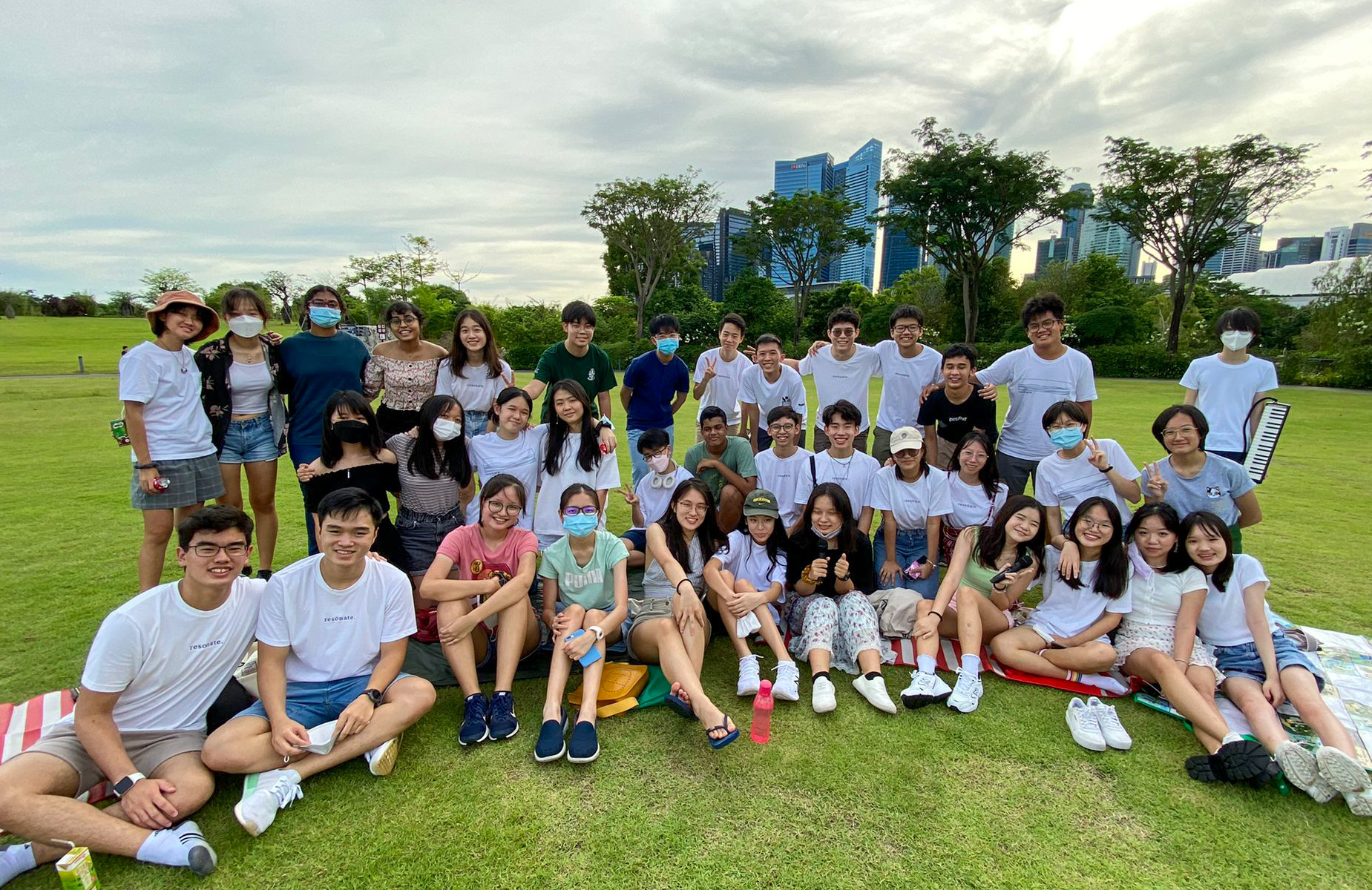
The bonds they formed are a result of regular internal bonding events and thoroughly trained leaders who are taught to intentionally build strong internal relationships. “We believe that everyone has a role in mentoring. And that’s the only way that we don’t lose what we build up,” Elijah explained. Leaders are encouraged to individually message the members working under them to check on how they’re doing and feeling.
Reso’s volunteers
With volunteers from secondary schools, junior colleges, and polytechnics, their ages vary quite a bit. However, the usual junior and senior hierarchy doesn’t exist in Reso. As described by Elijah, they are quite “age blind”. You can find 14-year-olds telling 18-year-olds what to do on the job.
Speaking to 14-year-old longtime volunteer E Vee Wong, she encourages other young people to consider volunteering too. “Being a volunteer also helps you to learn more about other people as well as yourself. It helps you become a better person so that you can better contribute to society,” said E Vee.
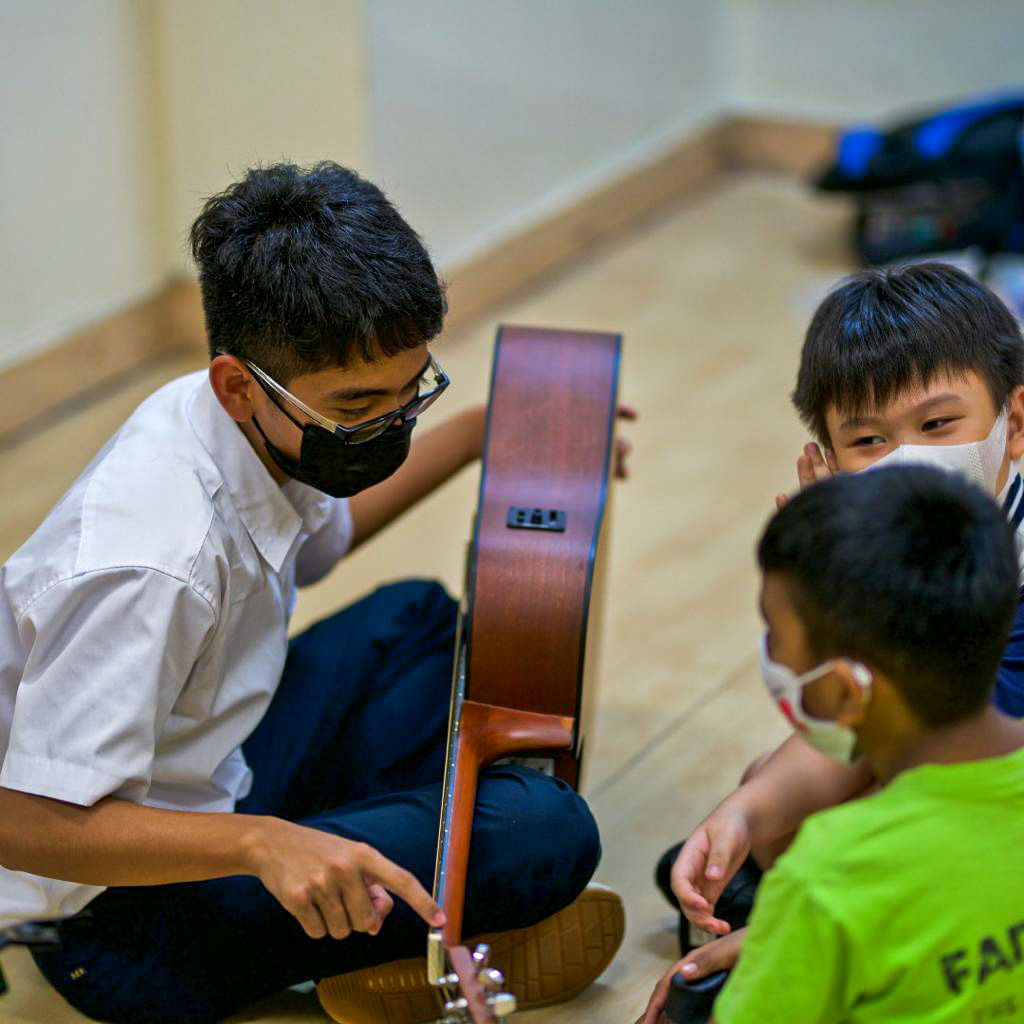
to the young beneficiaries. Photo credit: The Resonance Project
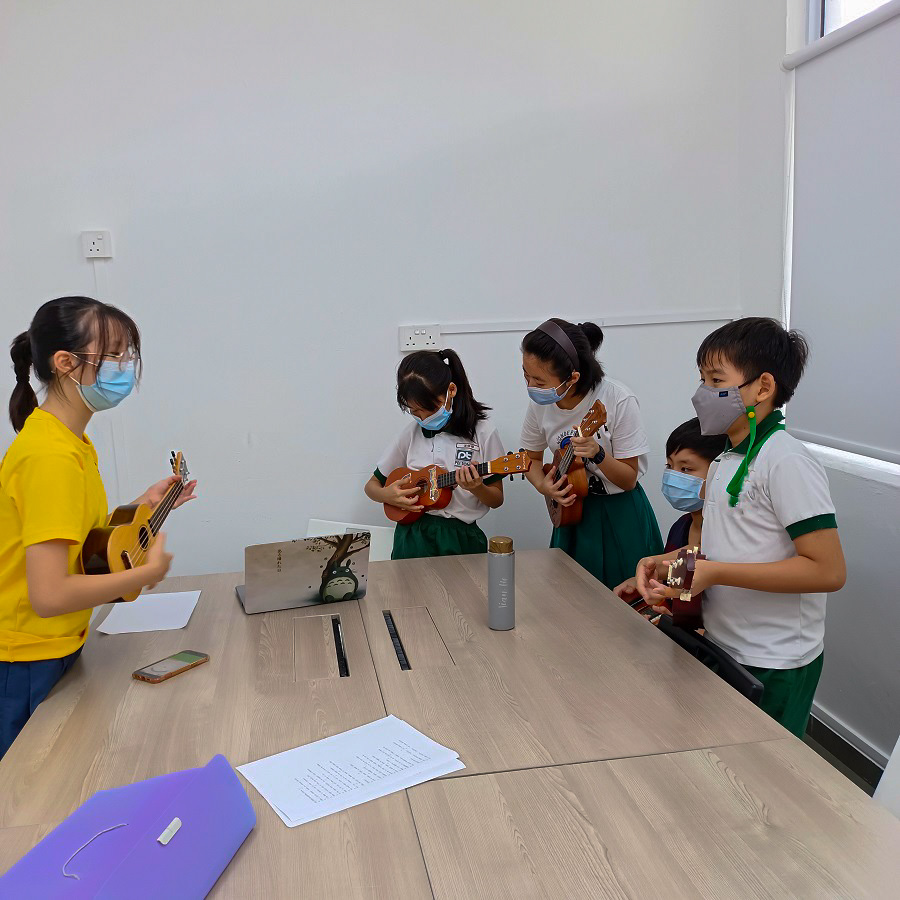
Photo credit: The Resonance Project
These volunteers serve two main groups of beneficiaries: underprivileged primary school children and elderly folk living in homes. Elijah shared, “Just your mere presence, it means so much to them…we understand how busy life can be, but we also advocate that we can make time. We can make sacrifices that mean a lot more to the beneficiaries than we think.”
Keeping the Reso flame alive
Student community projects come and go. What truly sets Reso apart is the plans they have to keep the organisation alive batch after batch. Elijah knew he had to find a way to replace himself for Reso to be sustainable. With enlistment looming, he made sure to have himself fully replaced before going bald.
Ryan Ng, 17, is one of the young leaders stepping up to take the reins in Reso. Ryan found out about Reso through a chain message on WhatsApp. He had been spending most of his time studying and got his desired results but wanted to do something more meaningful with his time. Funnily enough, he mentioned, “When I first heard that it was going to be a one year commitment… I was a little bit scared and I almost didn’t join.”
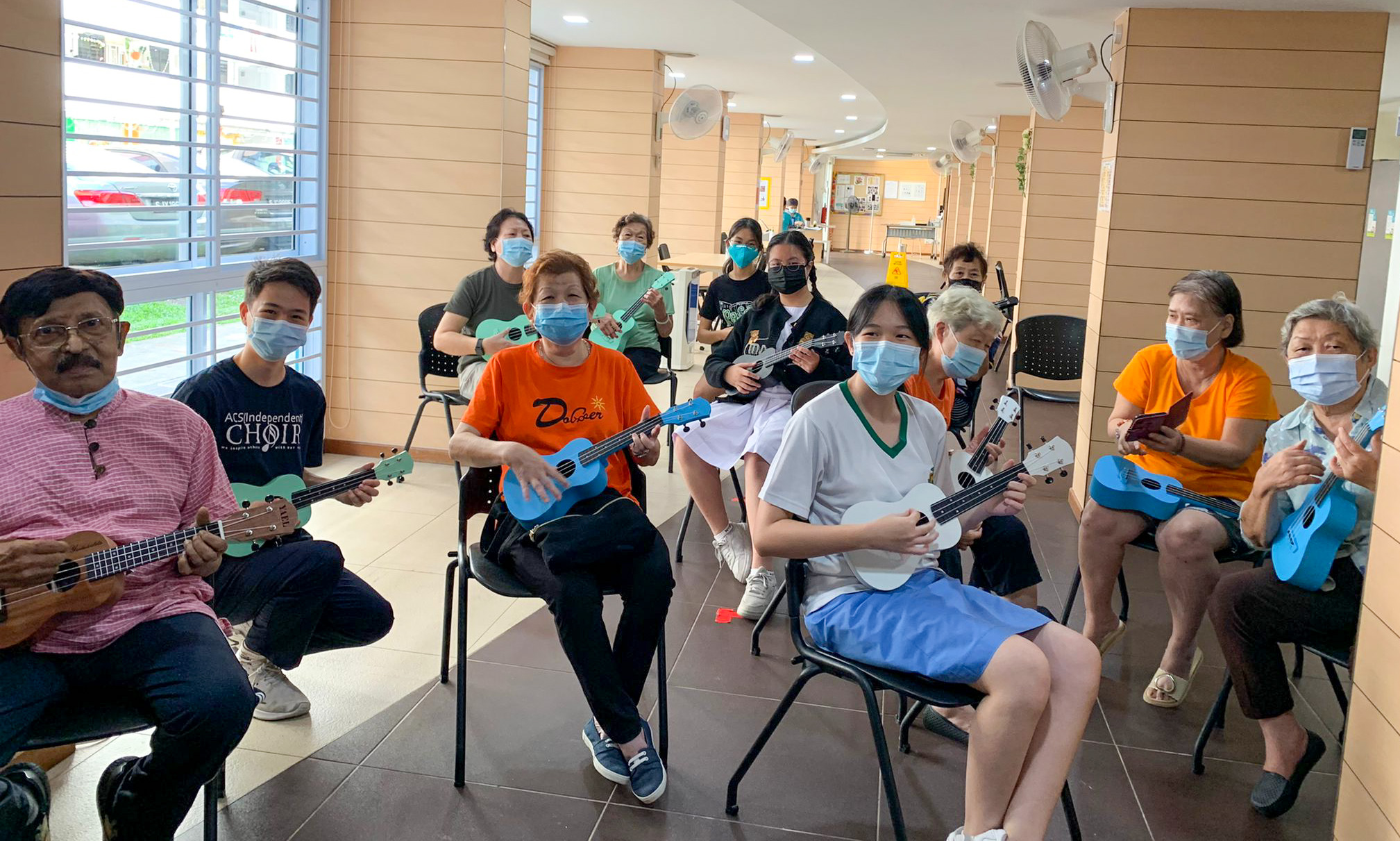
Well, he joined Reso, and at the orientation camp he met a leader that encouraged him to step up and take a bigger role in the project. “It was so welcoming, and we were forming such a strong community spirit that was very heartwarming,” said Ryan. These are the factors that kept Ryan working hard and motivating him to balance between Reso and academics.
What’s next for Reso?
Ryan emphasised that 2023 will continue to focus on their core goals of service and community. They will be expanding their reach to more beneficiaries and expanding Reso to impact more lives.
Elijah added, “That’s always the main thing we are trying to do. Also, to improve our systems and the way things work inside the project to make sure that it’s continuing well, that our growth is never static.”
Proofread by: Danial Roslan and Kimberley Caleon
